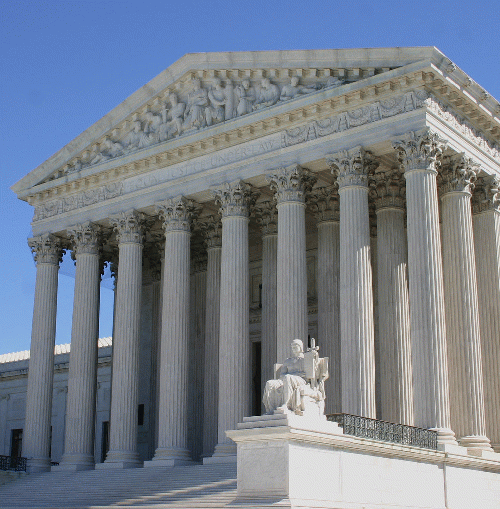From Truthout
Divided strictly along ideological lines, the Supreme Court construed what was left of the historic Voting Rights Act (VRA) to uphold two Arizona voter suppression laws that civil rights organizations had challenged for disproportionately burdening voters of color. This decision sends a dangerous signal to states that the courts are likely to uphold their voter suppression laws that make it harder for people of color to vote.
In Brnovich v. Democratic National Committee, the Court's six right-wingers ruled, over the dissent of the three liberals, that Arizona's "out of precinct policy" and "ballot harvesting" provision did not violate Section 2 of the VRA. Section 2 forbids any voting procedure that "results in a denial or abridgment of the right of any citizen of the United States to vote on account of race."
Samuel Alito, who authored the majority opinion, wrote that voting restrictions should be struck down only if they impose substantial burdens on voters of color that prevent them from voting. He said, "where a State provides multiple ways to vote, any burden imposed on voters who choose one of the available options cannot be evaluated without also taking into account the other available means."
Alarmingly, the majority says the prevention of "voter fraud" that bogus mantra of Republicans and Donald Trump during the election is a legitimate state interest that can overcome proof of a burden on voters and uphold a voting restriction.
In her dissent, Elena Kagan lambastes the majority for writing "its own set of rules" and "limiting Section 2 from multiple directions." The majority, Kagan charges, rests its decision "on a list of mostly made-up factors, at odds with Section 2 itself." She says the "important circumstances" that the Court invents "all cut in one direction toward limiting liability for race-based voting inequities."
The "out of precinct policy" requires election officials to discard a ballot that was cast at the wrong precinct. If a voter's name does not appear on the voting rolls in a certain precinct, she can cast a provisional ballot, but if it is later determined that she voted at the wrong precinct, her ballot will be thrown out.
The other voting restriction, known as "ballot harvesting," makes it a felony for an individual to collect and deliver another person's ballot. Although the provision contains exceptions for family members, caregivers, election officials and letter carriers, it criminalizes the assistance of community organizers, campaign workers, and others who help deliver ballots for people.
Last year, the Ninth U.S. Circuit Court of Appeals stuck down both provisions as violative of Section 2 because they disproportionately disadvantage voters of color.
Section 2 provides:
(Note: You can view every article as one long page if you sign up as an Advocate Member, or higher).






